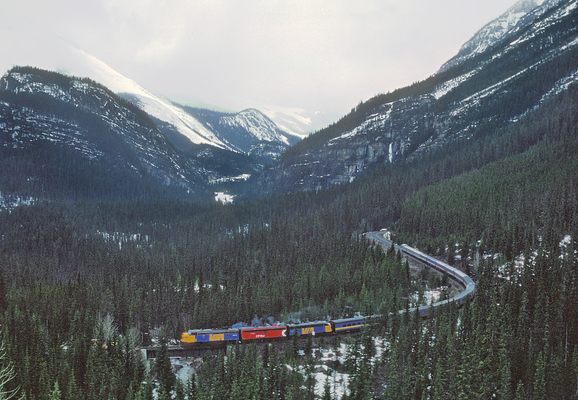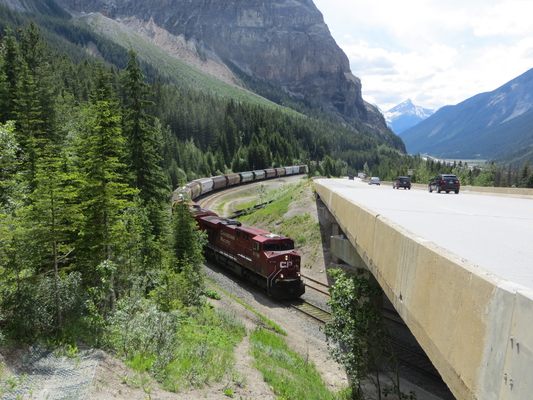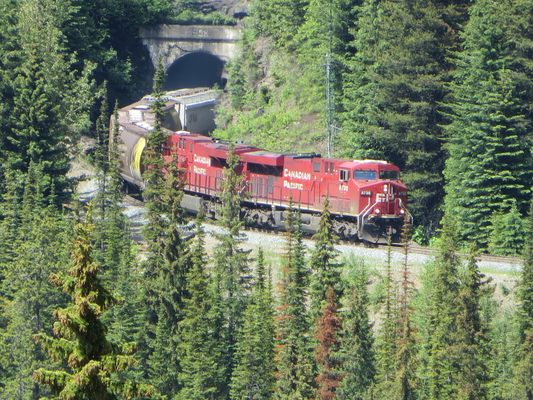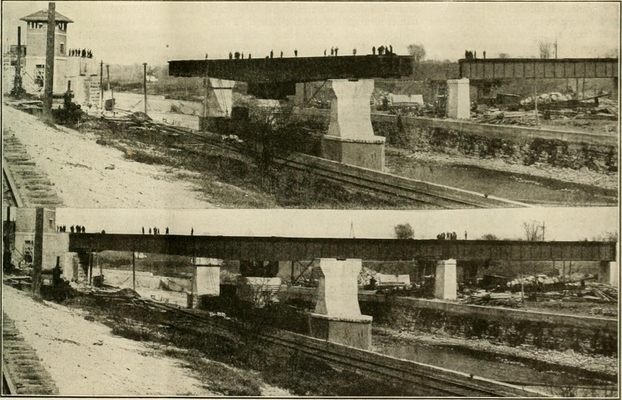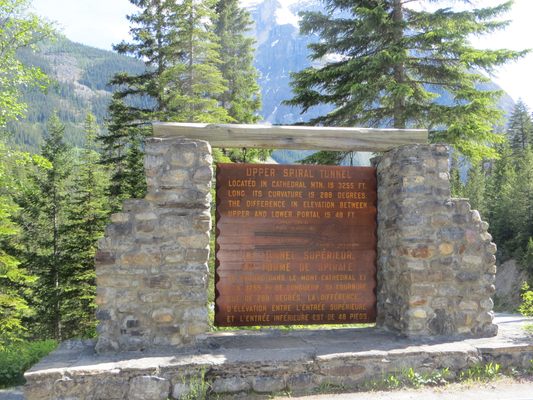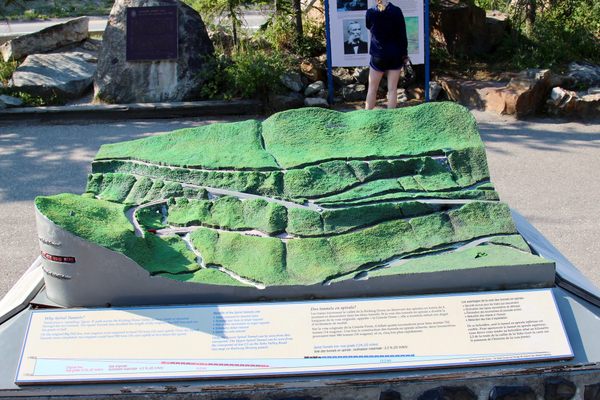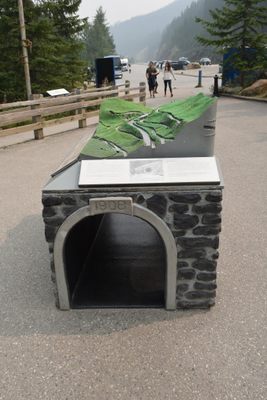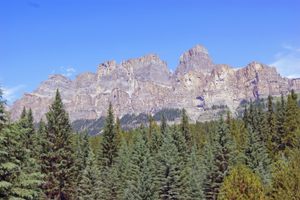About
While Canada was building its own railway across the country to connect the Atlantic to the Pacific in the late 19th century, it came across a major engineering obstacle in the Rocky Mountains of British Columbia. At the Kicking Horse Pass in today's Yoho National Park, a hill that came to be known simply as "the Big Hill" would become the site of one of the most steeply graded sections of train track ever attempted.
After a number of train derailments and some deaths on the Big Hill, a new workaround had to be found to make the trip across the Rockies more viable for serious trade and transportation. A spiral-shaped track would allow trains to safely traverse the area on a much flatter grade. This extended section of track would have to tunnel into the heart of the mountains on one side of the valley, snake across the valley floor, then go deep into the mountains on the other side before looping back out to continue its journey either east or west. The sheer remoteness of this location and the ruggedness of the terrain made this task seem nearly impossible, but the project was agreed upon and construction began.
After a whopping 25 years, the project was finally completed in 1909. The steeply graded Big Hill track was replaced by a much flatter route that winds through the mountains. The Lower Spiral is cut into Mt. Ogden, where trains climb 15 meters (50 feet) spread over 891 meters (0.6 miles) of track. The Upper Spiral is located inside Cathedral Mountain, where trains climb 17 meters (56 feet) spread over 991 meters (0.6 miles) of track before emerging at the top of Kicking Horse Pass.
The Spiral Tunnels are still used to this day, and Kicking Horse Pass is a popular location for trainspotting enthusiasts.
Related Tags
Know Before You Go
The nearby "Walk in the Past" trail offers great views of the foot of the Spiral Tunnels and the surrounding area. Here, visitors can also see an abandoned locomotive that was used during the construction of the tunnels.
The nearby town of Field has a number of amenities and a visitor center where you can learn more about the area's history.
Community Contributors
Added By
Published
October 13, 2022
